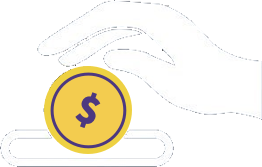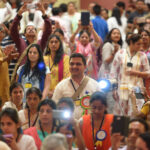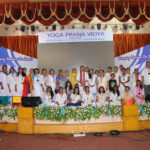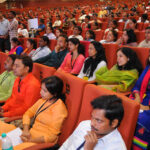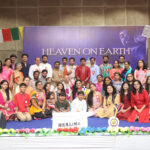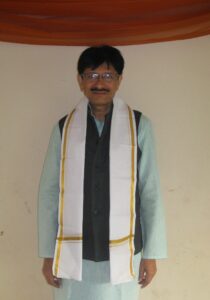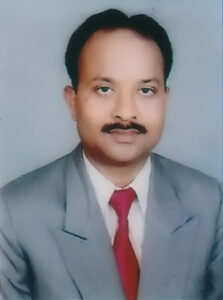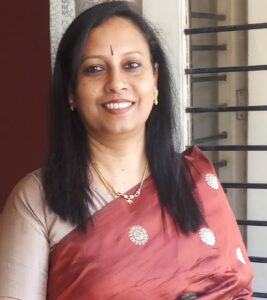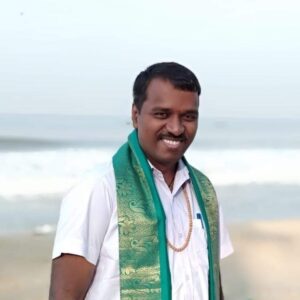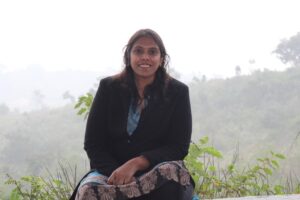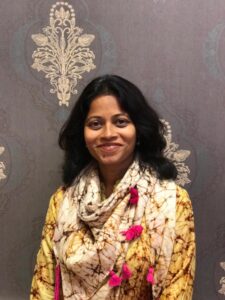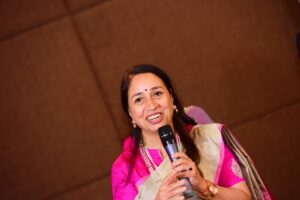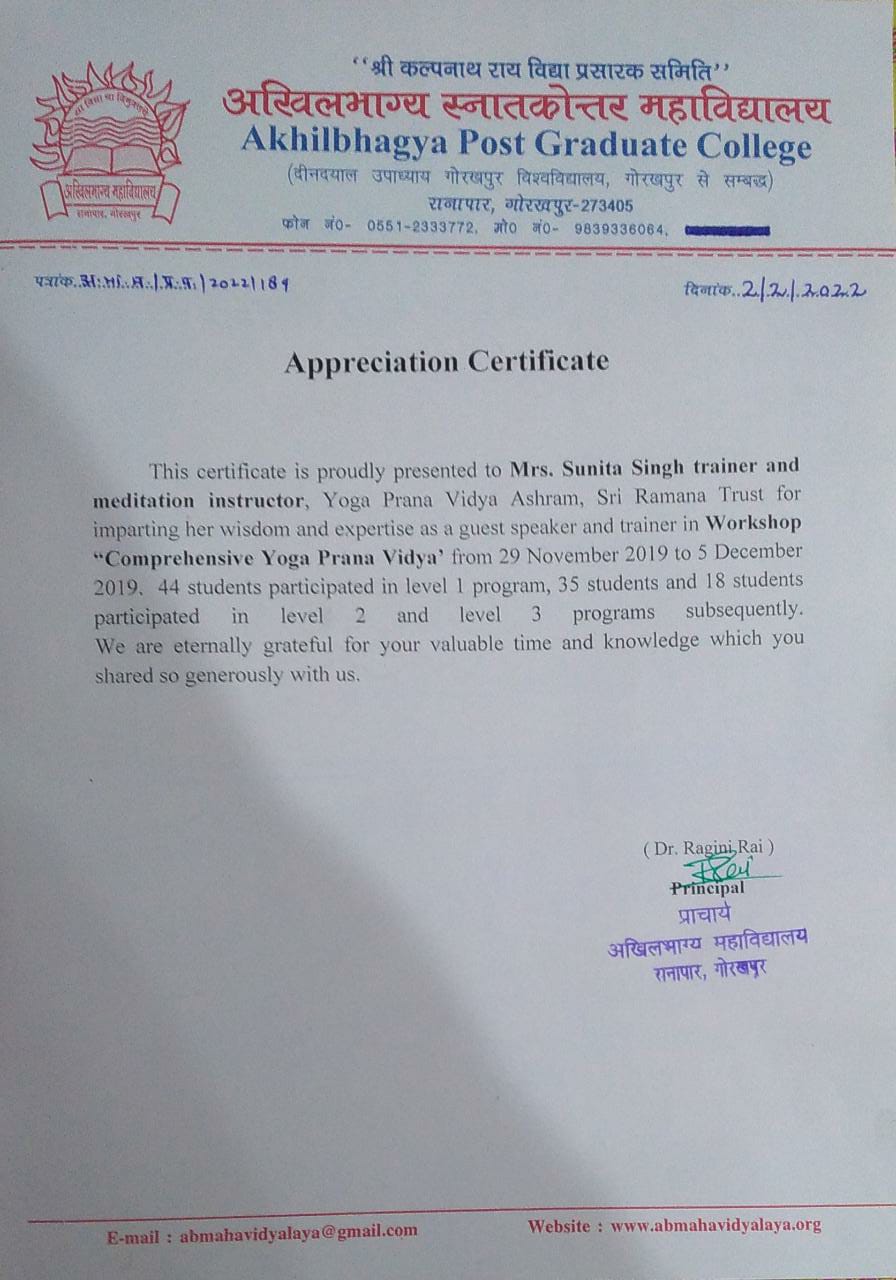Compassionate Parenting and Nurturing

Everyone wants to be a best parent, but it can be one of the most challenging tasks. How to deal with a two year old who hits others? How to act when your five year old doesn’t want to share toys with her friends? How to connect with a grade schooler about putting back stuff after using them? And as your child grows older, the challenges only change.
Parents everywhere want to guide, have a loving connection and mutual respect with their children. However, with their overbooked schedules, pressures of work and other commitments, they often find themselves juggling between different priorities and stressed. The quick-fix approach of managing the behaviour of the child doesn’t help much. We have to go beyond this approach to build a foundation of trust with our children.
The environment that we provide for our children is very important. APJ Abdul kalam, in his Transcendence, states that it is the environment, and more specifically, our attitude to or perception of the environment which controls our gene activity and hence our life.
We emphasise on creating a “criticism-free” environment where there is mutual respect, co-operation and trust between adults and children. This can be achieved by focusing on the needs without judging the behaviour and actively involving in creating solutions for meeting everyone’s needs! By creating such an environment, you can empower your children to discover their potential.
YPV (Yoga Prana Vidya) is a system of integrated approach to address the needs of oneself and others for better health, emotional stability, mental clarity, spiritual upliftment and to focus on right purposes of one’s life. It is a way of life in itself. You can transform or re-program your thoughts, emotions, actions and hence bring a change in your perception of the environment and others around.
You can learn these techniques and skills to prepare your children for the world and ignite the genius within. They can be empowered to contribute better to their families, society, and in making for a happier, more peaceful planet in future!
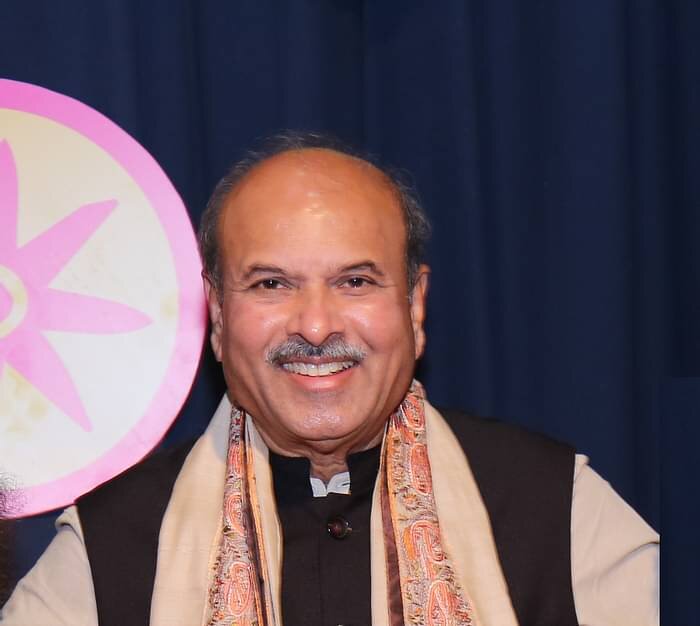
Our Habitual Ways of Speech
As a parent we believe that we must make our child behave well! We get our kids to do what we want by criticising and name-calling them. Even positive labels can exert too much pressure on them to behave in a particular way or to meet certain expectation all the time. Sometimes, we compare them with other children, wrongly believing that we might be motivating them. But this might leave them feeling jealous, hurt or less worthy. When it comes to discipline, we tend to think that punitive measure is the most effective way. Hold back and check, what’s your aim? To instil fear? Or help your child learn the values that you most appreciate? Even reward has its setback. Your child might have accomplished the task given, but for what reason? For the reward? Or due to the desire to help, contribute or learn? Even our tone is different while asking them for help vs requesting another adult for the same. We forget to extend similar respect to them as we would to an adult.
According to a UCLA (University of California, Los Angeles) survey, kids hear a “no” 400 times a day. As per another study, an average child hears the word ‘‘NO’’ or DON’T over 1,48,000 times while growing up, compared to few 1000 ‘‘YES’’ messages.
Stress Response
When kids hear too many demands, should, have to and such communication as mentioned above, anxiety or fear is stimulated. This triggers a stress response of fight, flight or freeze. This response is falsely stimulated from the adrenal glands which should otherwise be stimulated in order to better handle an emergency situation when our body needs additional energy to withstand unusual strain.
In order to prepare for the fight or flight response, some blood is squeezed from the visceral organs and is pushed to the arms and legs. These organs need this blood for their nourishment. In order to conserve energy further and give priority to the external protection mechanism of fight or flight, these stress hormones temporarily shut the internal mechanism of fighting an infection, i.e., our immune system. That is not all, blood supply to the frontal brain, responsible for reasoning, planning and problem solving is also shut and pushed to the hind brain, prompting a quick reflexive or reactive behaviour.
Now, it is quite evident why children stomp their feet, throw things, bang the door or answer back, when overwhelmed and upset. In fact, the frontal brain is not mature until early adulthood. The very expectation of a mature behaviour, controlling their emotions and making rational decisions is not realistic when they are not fully capable of it.
We seldom realize, how our actions and speech, out of concern and care for our dear children can actually be quite injurious to them.
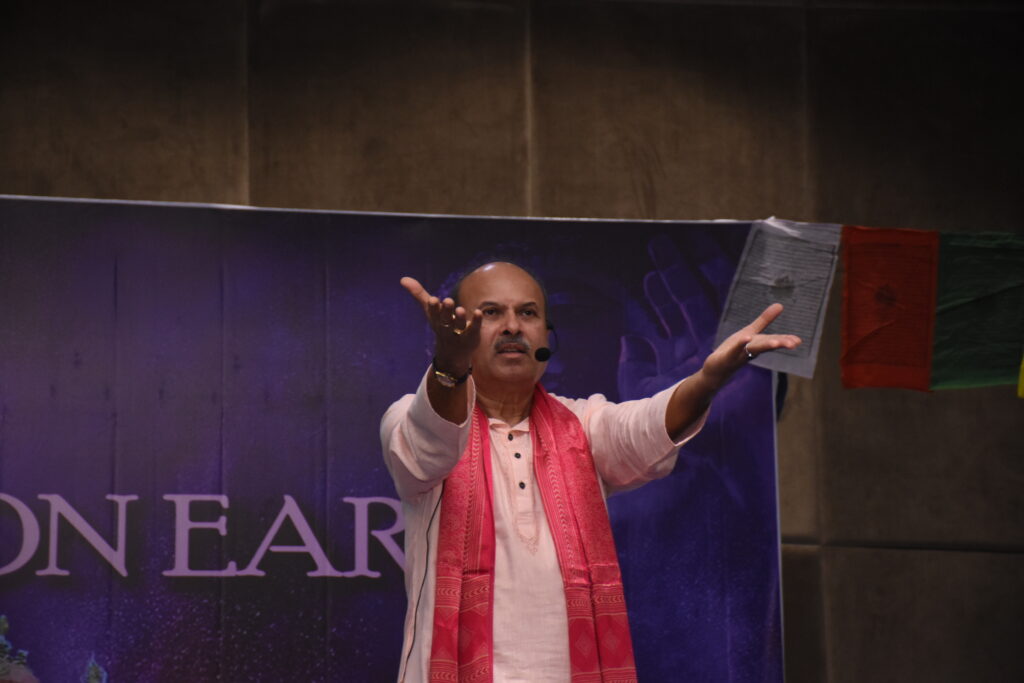
Subconscious Programming
Young children are highly suggestible. They can download incredible amounts of information in order to thrive in their environment. Up to six years of age their brain waves are at the frequencies of 8 Hz and lower. Thus, making their brains extremely plastic. Behaviours, beliefs, comments and criticism from the parents, caretakers and the adults in their environment can make a permanent mark in their sub-conscious minds. This is true with older kids too, with any repetitive statements that they hear.
The neuro-cardiological research by HeartMath Solution, finds that infants sense and resonate with the coherency and incoherency of the adult’s heart rhythms or HRV (Heart Rate Variability – measurement of beat to beat changes in the heart rate). A slightest change in emotions shows up in the HRV pattern. When in anger or frustration, the HRV pattern looks irregular, incoherent and disordered. On the other hand, when we are experiencing love or are appreciative, the HRV pattern is ordered and coherent. Therefore, the caregiver’s emotional state and response, even though non-verbal, can have a significant effect on the children’s brain, their behaviour, attitude and emotional response.
Unless we know how to reprogram them, this subconscious programming can affect their biology for the rest of their lives. This is how the environment and more importantly our attitude to the environment, controls the gene activity and hence our entire life, as mentioned by Bruce Lipton in his book “The Biology of Belief” and quoted by APJ in his “Transcendence”. In case of children, environment matters most, as their system is still plastic.
We can further understand through Yoga Prana Vidya energy concepts as to how our emotions and thoughts have a radiating vibration which can affect people around in our environment even without uttering a single word.
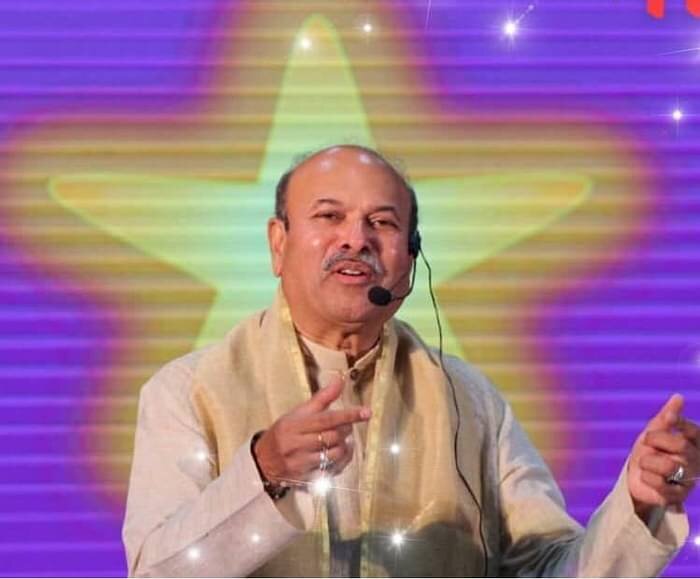
Positive Approach to Motivating
- Use clear, positive, action-based request for what you want your children to do. That is more powerful, persuasive and easy to follow. If you keep telling them what you don’t want them to do, it leads to confusion as to what is actually expected of them.
We all know that actions speak louder than words. So, as stated by Robert Fulgrum, do not worry that your children are not listening to you, worry that they are watching you instead. Hence, lead your children by example.
- See the need behind every action. Sometimes it is easy to comprehend it and at other times difficult to know.
For example, if you ask a child why he wants to watch tv, he may tell you that he wants to have fun. This is probably even obvious without asking him. But say, the child spits on a friend because he wanted to stop his friend who was about to shoot the tv with a toy gun. It is difficult to know why he did so. When asked, he may just say that the other child is bad or he doesn’t like him. For this the parents or other adults may react by saying, “you shouldn’t talk like that”, “that’s a mean thing to say”, “whose fault is this”, “who started this”, etc. These kinds of questions do not lead to understanding of the intentions behind the child’s action. Without knowing the reasons, we cannot help resolve the issue.
In such situations, when their behaviour does not turn out well, lecturing, scolding, shaming, criticising and punishing doesn’t help them improve. They need someone to hear them, empathise with their feelings and intentions. This encourages self-reflection and learning from their mistakes.
- Distinguish between needs and the strategies used to achieve them, as suggested by Marshall B Rosenberg in his work, Non-Violent Communication. Needs are universal. All have same needs. Only the approach taken to meet them may be different. For example, wanting to play a video game is not a need. The underlying need could be for entertainment, fun, relaxation, etc. Most conflicts, power struggles and arguments can be resolved when we focus on the need behind the different strategies.
- Check your intention in every interaction! Do you want your way only? Or do you want to connect with your child and respect your child’s and your needs equally.
Not only must you understand and address your child’s need, you must also consider your need. Or else, it may result in accumulated stress. In fact, as you respect the needs of all in the family, a conducive environment of mutual trust and bonding can be created.
- Take time-out to calm down when you find yourself getting overwhelmed, or heart racing, experience heaviness in arms or solar plexus region, sense discomfort in head area or throat, speaking louder, criticising, labelling, throwing things, pushing, spanking, etc. Watch for any such signs. You may practice Rhythmic Yogic Breathing for about 10 to 12 cycles to calm down. Breathing exercises and meditation are brain trainers for best frontal cortex functioning of the brain.
- Re-wire the brain’s stress response to emotional triggers by practicing Rhythmic Yogic Breathing 3 to 4 times a day, doing regular exercises, making healthy food choices, practicing gratitude regularly, carrying out Forgiveness Sadhana twice daily, practicing Planetary Peace Meditation at least once a week and training yourself to focus on the needs in all situations and finding the various solutions that can be possible. The more you strengthen the brain in moments of low stress, the better it will respond in high stress situations.
In order to understand and empathise with others’ need, you must be in a higher emotional state or in other words, the heart energy centre must be maintained big. It can be accomplished by practicing these simple techniques just mentioned.
These techniques also bring your brain waves to alpha state (8 to 13 Hz). This not only strengthens your immune system, reduces anxiety and enhances your creativity but also is effective in reprogramming your inner subconscious mind of any negative beliefs and replacing with positive attitudes and perceptions.
- Set aside a certain time of the day when you and your child can review the day. Use this time to appreciate him for all that he does well, however minute that it may be. You may bring up 1 or 2 issues that you want to work on. Weed out the unwholesome behaviour. Brainstorm for better ways to achieve the same.
Nurturing children involves, enhancing their strengths and compassionately weeding out certain inherent tendencies that are disagreeable. Using some positive affirmations will be of great help, for children and adults, if regularly done.
- You may further help them weed out the disagreeable and unwholesome tendencies using Yoga Prana Vidya energy healing.
- Help children learn their lessons from the various situations that they face, teach them the importance of forgiveness, mercy, empathy, giving, harmonizing and to check their intention to be positive at all times. Teach them to be grateful. Make them understand that no one must be taken for granted.
Help them understand competition, co-operation and contribution, importance of group work and right company. Competition is good, but more important is co-operation. Later, they must also contribute back to the family and the society. If they are empowered to face the challenges, they can take off. Otherwise by pushing them, you are only making them mediocre achievers. Even the aircraft needs an opposing air pressure to take off.
- Help them weed out gloating, enviousness, stealing, not wanting to return others belongings, pride, injuriousness out of uncontrolled anger, greed, wastage and ingratitude. Nurture them gently but firmly when needed.
- When using force, check your intention. Do you want to belittle your child, cause pain or do you want to protect and facilitate learning?
Reward and punishment must be used only 5% of times. Reward does not kindle the internal motivation to contribute or learn and punishment instils fear. 95% use compassion and discernment. As children grow, be tolerant, use more discernment, and help improve their discretion.
An old Indian saying: use Sama (compassion, more specifically for infants and younger children), Bheda (discernment) and minimize the use of Daana (reward) and Dandopayam (punishment). The problem is that, presently, the whole world is operating primarily based on the reward or punishment model with excessive importance given to competition!
Make children independent at each stage. It helps develop self-confidence. Instead of forcing your decisions on important matters, like, choosing a career, you must guide your children in making the appropriate choice themselves.
- Motivate them to do Super Brain Asana regularly to transmute the energy from the lower energy centres to the higher centres to upgrade the brain and also to strengthen the body. It just takes two to three minutes. Do not be in scepticism due to the simplicity of the techniques. This technique is proven to activate alpha wave activity in the brain and balance the intuitive and logical aspects (two halves of the brain).
- Children between 10-16 years can practice Planetary Peace Meditation once a week.
- You may do these practices together with your child, which will be motivational and beneficial for both. For example, practicing Forgiveness Sadhana with your child can bring understanding, faith and healthy bonding between the two of you.
Everyone, who has anything to do with children, (i.e., parents, teachers, other support staff in schools and play schools, other caregivers in their environment), must be in a higher emotional state. The focus and work must start with them!
- Remember, as they grow, their systems become less impressionable and their attitude gets set for the entire life! Then they are difficult to mould. However, bringing them to alpha state by using YPV techniques can help reprogram.
You may try our YPV Sadhana app which is available in many languages. This app has guided tracks for the above mentioned practices of Rhythmic Yogic Breathing, Super Brain Asana, Forgiveness Sadhana and Planetary Peace Meditation which can calm you, improve and sustain your immunity, better your perception and attitude towards life and help create a favourable environment where every member of the family thrives.
YPV Sadhana App
Download YPV Sadhana app to boost immunity, emotional balance and positive attitude towards life.
Yoga Prana Vidya Ashram Sri Ramana Trust Hosur – Thally Main Road Near Ubbanur Lake Thally, Krishnagiri Dist Tamil Nadu – 635118, INDIA
Contacts
Disclaimer :
Yoga Prana Vidya is not intended to replace other forms of healing modalities including allopathy and it is also complementary including alternative.
In case of Severe or Persisting symptoms, refer to a medical doctor and or a Certified Yoga Prana Vidya Healer.
“Currently we do not have any connection / affiliation / association with and are not authorised / represented / endorsed / certified / maintained / sponsored by Master Choa Kok Sui and/or organisations established by the Master and/or subsidiaries / affiliates of such organisations.”
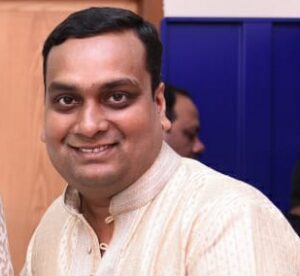
Dhaval Dholakia is a certified YPV healer for 16 years. He is also a mechanical engineer and has worked in Plastic Processing Machinery for 25 years. He resides in Ahmedabad.
Dr. S. K. Singh is a Arhat Trainer having more than 20 years of YPV healing and teaching experience. He is also trained in Kriyashakti & Fengsui and completed the one year intensive program in 2016. He has organized many higher level YPV training workshops and retreats. He completed his Master’s degree in Science and has a doctorate in Environmental Biology. He hails from Varanasi.
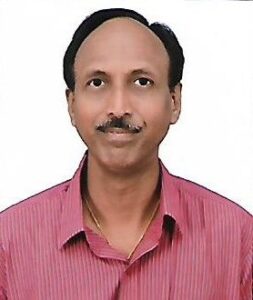
Madhu Sudhir is a senior YPV trainer since 2004. She has trained over 2500 students and more than 50 trainers who are also propagating YPV practices. She has done YPV healing for more than 7000 people since 2006. She is the secretary of the Mysore YPV Healers Association since 2011. She is also associated with JSS University – Dental College as a guest lecturer for “Holistic wellness through YPV” for BDS 1st year students. She has also conducted various seminars on YPV teachings. She graduated in commerce from Bangalore University and also has a diploma in architecture. She also works as a Vaastu consultant for businesses, constructions, plots & houses.
Raghu N is a Arhat Trainer having over 22 years of YPV healing and teaching experience. He founded “Master YPV Trust Nanjangud” in 2019 and conducting regular service activities through this trust in his role as President. He also started the first independently located YPV centre in Nanjangud in 2014. He has previously attended the one year Spiritual Intensive Program for 2015-16 conducted in Sri Ramana Trust Ashram. He also has 7 years of experience working as a secretary at “Mysore YPV Healers Association” during which he nurtured many healers. Raghu conducts teachings in Kannada, English and Hindi languages. He has also completed a B.Sc. and B.Ed. from the Mysore University.
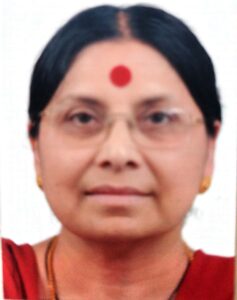
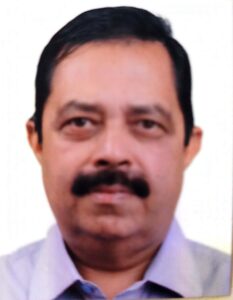
1: Name : Lakhsmi Devi

1. Name – Vishakha Karnani
2. address/ centre – 316, Sai Kripa Colony,
Indore 452002, Madhya Pradesh
3. educational qualification – B.A. Loreto College, Kolkata. Then worked as a photo journalist & a freelancer (children photography)
4. any paper presentation – COVID 19 case report in Innovative publication journal. July 2020
5. any specific achievements – part of the organising team in the first SIP , Pune, 2015. Thereafter involved in organising public darshan and Compassionate Parenting and nurturing programs in various cities like Indore, Nagpur, Raipur, Pune, Kolkata and Ichalkaranji (kolhapur)
6. Since 2006. Got introduced to the world of energy in Kolkata and shifted to Indore in 2008 to spread the work in Central India. Currently working in M.P, Chattisgarh, Maharashtra, Rajasthan, North East India.
Radha Ganesh is presently working for Yoga Prana Vidya Organization as Senior Arhat trainer and Ethics committee member. She is a Senior Arhat Trainer and certified YPV healer with over 18 years of experience. She completed the one-year spiritual intensive program at the YPV ashram in Thally. She has been trained in basic, advanced healing and psychotherapy at World Pranic Healing. Radha worked in Unnathi Healing Foundation Trust as a healer and trainer. She also worked in MS Ramaiiah Hospital Pranic Healing Department, Ayush Arogya Dhama. She has taught YPV teachings in several schools and also conducted classes for nursing staff, pharma students among others. She regularly conducts an Arhat Marathon on every last Sunday of the month at Karnataka Pranic Healing foundation trust since last 3 years. Radha has completed her M.A. in English from MG University, Kerala.
Yoga Prana Vidya
| Account Name : | Sri Ramana Trust |
| A/C No: | 566438417 |
| Name of Bank: | Indian Bank |
| IFSC Code: | IDIB000T060 |
| Address: | Police Station Road, Thally, Krishnagiri |
